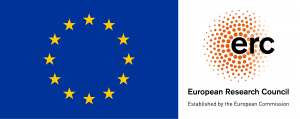At the 2019 European Academy of Religion annual conference
NeMoSanctI organizes a panel at the 2019 annual conference of EuARe-European Academy of Religion, which will take place in Bologna, March 4-7, 2019.
The panel explores the codification of the notion of martyrdom in Catholic tradition across a range of textual genres, with a focus on normative and judicial aspects. Here you can find the panel presentation, while the full program of the conference is available here.
Encoding martyrdom. From early modern norms to contemporary culture
March 7, 2019 – 14:30-16:30 – Sala Archivio – FscireIn the frame of the regulation of sanctity, the Church defined
with an increasing precision the norms for the official
recognition of martyrdom (Dalla Torre 1999, Giovannucci 2008).
However, the figure of the martyr such as it lives in the collective
imagery derives from a broader discourse involving a plurality
of interlocutors. This panel tackles this discursive evolution of
the idea of martyrdom within early modern and contemporary
Catholicism through the prisms of legal and religious history,
and semiotics. It starts from the analysis of Canon Law, with
particular attention to the seminal systematization by Prospero
Lambertini (1734-38); then, it explores the complex relationship
between institutional and non-institutional perspectives by
making a semiotic recognition of the codification of martyrdom
in the Martyrologium Romanum, in modern narratives and in
contemporary theatre.Chair:
Jenny Ponzo (Università di Torino)Panelists:
Pierluigi Giovannucci (Università di Padova) – Il concetto
storico-giuridico di martirio nella tradizione cristiana
Gabriele Marino (Università di Torino) – Martyrologium
Romanum: An Introduction from the Standpoint of Semiotics
Marcello La Matina (Università di Macerata) – Martyrion.
Some Semiotic Constraints in Modern Christian narratives
Jenny Ponzo (Università di Torino) – Martyrs on trial: from
causes for canonization to contemporary theatre

